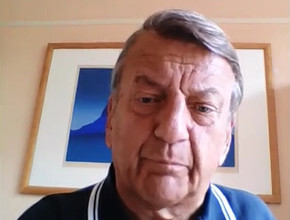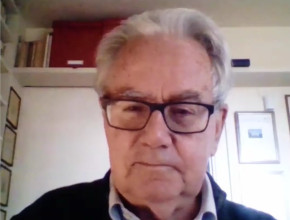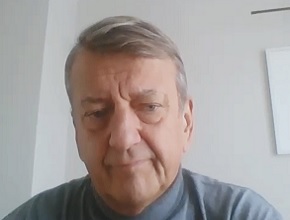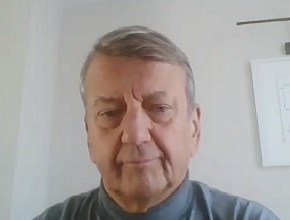Dr Jean-Louis Vincent, professor of intensive care medicine at Université libre de Bruxelles, past president of the World Federation of Societies of Intensive and Critical Care Medicine and the European Society of Intensive Care Medicine, accomplished author and researcher, talks to Dr Roman Jaeschke about the evolution of the COVID-19 situation around the world.
For part 2, click here.
Roman Jaeschke, MD, MSc: Good morning. Welcome to another edition of McMaster Perspective with one of our by far favorite interviewees, Professor Jean-Louis Vincent. We’ve spoken twice about the coronavirus disease 2019 (COVID-19) situation.
Professor Vincent, where are we today?
Jean-Louis Vincent, MD, PhD: First of all, thank you for inviting me to express my opinion and share some thoughts with you. Clearly in Europe, where I am, the situation is getting much better. People are looking forward to taking some holidays, visiting other European countries. But of course, when we look around the globe, the situation is worrisome—not only in Beijing, where there is a number of [newly] infected COVID-19 patients, but even in the United States, where President Trump has played a nasty role. I was just watching a little bit of CNN during breakfast this morning. We could see that the number of cases is still increasing in the United States, but many people refuse social distancing. I’m not a big fan of masks, though sometimes we need them, but people don’t take any measures and in some states the numbers are increasing substantially.
When we go to Africa, Latin America, or India, almost everywhere it’s absolutely terrible. The number of cases around the globe is increasing substantially. For these countries that I mentioned, of course it’s in part associated with relatively poor health-care systems and also with political systems—like in Brazil, where President Bolsonaro doesn’t care very much about COVID-19 and doesn’t do anything for what could happen in the favelas.
In less wealthy countries the populations are usually younger than in our countries, and that may explain why the number of deaths may perhaps not be as high as in Europe in particular, but this is still relative. There are many deaths there, a number of my friends in Brazil are telling me how bad it is, and it’s similar in Mexico. It’s still very worrisome.
In our hospitals in Europe we do not see severe cases anymore. We see some, but not many. In the intensive care units (ICUs) we don’t see many, and we don’t know why. Of course there are still some infected patients, but they do not seem to develop severe complications, like some weeks ago. Why? We just don’t know. Is it because they have acquired some immunity? Is it because the virus has changed? We don’t know.
Roman Jaeschke: You mentioned to me that you read about 50 COVID-19–related papers per day as the editor in chief of critical care journals. So if you don’t know the answer, I suspect a lot of other people do not know it either.
A question from almost a layperson, and I’m not sure if you can answer it: Could we analyze the virus in a way that would allow us to say it’s still the same virus or that something has changed in it? Is it a structure that we could study in detail and say this is the same virus?
Jean-Louis Vincent: Yes, absolutely. This is being done. This is monitored by experts who look at the virus. They check if it has mutated or not. There are some mutations, but not major.
The other thing that we can monitor is the genetic factors that perhaps may influence the degree of sensitivity of populations. The last time we spoke about the somewhat lesser incidence of severe complications in Eastern Europe—Poland, Romania, Bulgaria, and so on. This doesn’t seem to be a big problem. People start to realize that there are some genetic factors that may play a role.
Initially, we started with blood groups, with the A group being more at risk than other blood groups and the O group being more protected. We could see in the New England Journal of Medicine a very interesting article showing that indeed some genetic factors, which are also associated with blood groups, could influence the sensitivity of individuals to the virus. It’s very interesting.
Roman Jaeschke: So maybe the virus is changing, or maybe we are different. Essentially the news is obviously good, at least in your country [Belgium] and in Europe, with the number of severe cases decreasing. We’ll talk in a moment about management, which has changed in the meantime. For the moment, I thank you for this part of the interview. We’ll talk again very soon.
 English
English
 Español
Español
 українська
українська











